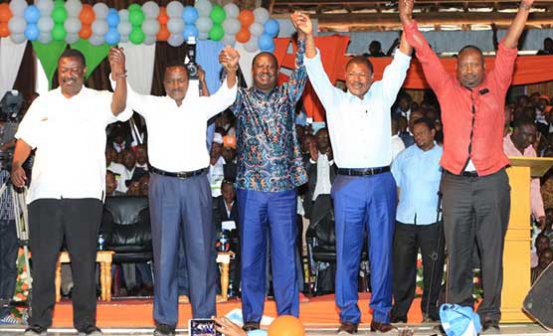×
The Standard e-Paper
Fearless, Trusted News

Sitting down to discuss politics last year, one of my mentors introduced me to an interesting book published in 1841. It was Charles Mackay’s “Memoirs of Extraordinary Popular Delusions and the Madness of Crowds.” One of my best quotes from this book is that ‘men go mad in herds, while they only recover their senses slowly, one by one.’
It was interesting to watch bits of the umpteenth re-launch of a united opposition platform at Bomas of Kenya this week. Same crowd. Same narratives.